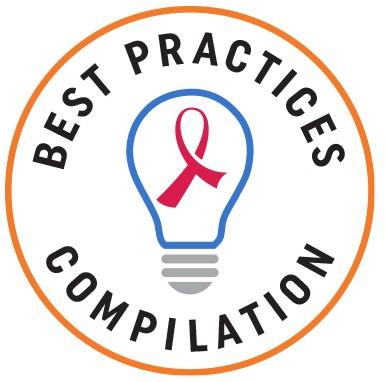
Many of us probably missed Southern HIV/AIDS Awareness Day, August 20, one of the growing number of awareness days that have emerged in recent years. Nonetheless, this is an opportunity to spotlight a handful of interventions applied in Southern locations, with evidence that they improve HIV care outcomes.
The following interventions are catalogued within the Ryan White HIV/AIDS Program's Best Practices Compilation, which catalogues interventions with demonstrated effectiveness.
STYLE 2.0: Young Black MSM: The Carolinas
Project Strength Through Youth Livin' Empowered (STYLE) 2.0 is an adaptation of an intervention called STYLE, was tailored to young Black MSM (ages 18-35) in North and South Carolina. Over 12 months, outcomes across the HIV care continuum approved but were not statistically significant.
STYLE 2.0 is one of multiple interventions developed under the SPNS Behavioral Health Models to Improve HIV Health Outcomes for Black Men Who Have Sex With Men.
Pregnant Women with HIV: Mississippi
Postpartum Retention and Engagement Quality Improvement Initiative, located in Jackson, Mississippi, is a quality improvement initiative that focused on cutting down on loss to care that occurred when women with HIV who became pregnant were transitioned from the adult HIV care program to the perinatal HIV care program. Interventions included coordination between clinics, data monitoring, patient education materials, and case management. As a result there "were significant improvements in retention in care and viral suppression at both six and 12 months."
Text Messaging and Youth: Southern Texas
Wellness Web 2.0. This South Texas intervention is a text message-based intervention using health education tools, appointment reminders, and navigation services to increase linkage and retention in care for young people with HIV. There were mixed results at 6- and 18-months regarding CD4 counts below <200 and viral suppression.
Access Wellness Web and other social media resources developed under the SPNS Social Media Initiative Demonstration Sites.
QI Tools to Link Youth to HIV Care: Mississippi
Reaching Viral Suppression in Youth with HIV is a network of community health centers in Southern Mississippi (Southeast Mississippi Rural Health Initiative, Inc.) used data to identify youth who were missing appointments/not achieving viral suppression Additional quality improvement techniques were utilized (e.g., identified barriers to care and made referrals to needed services, behavioral health visits). As a result, over 12 months, "viral suppression rates for youth increased from 58% to 78%.
This project was part of the HRSA-funded end+disparities ECHO Collaborative, a project of the Center for Quality Improvement and Innovation (CQII).